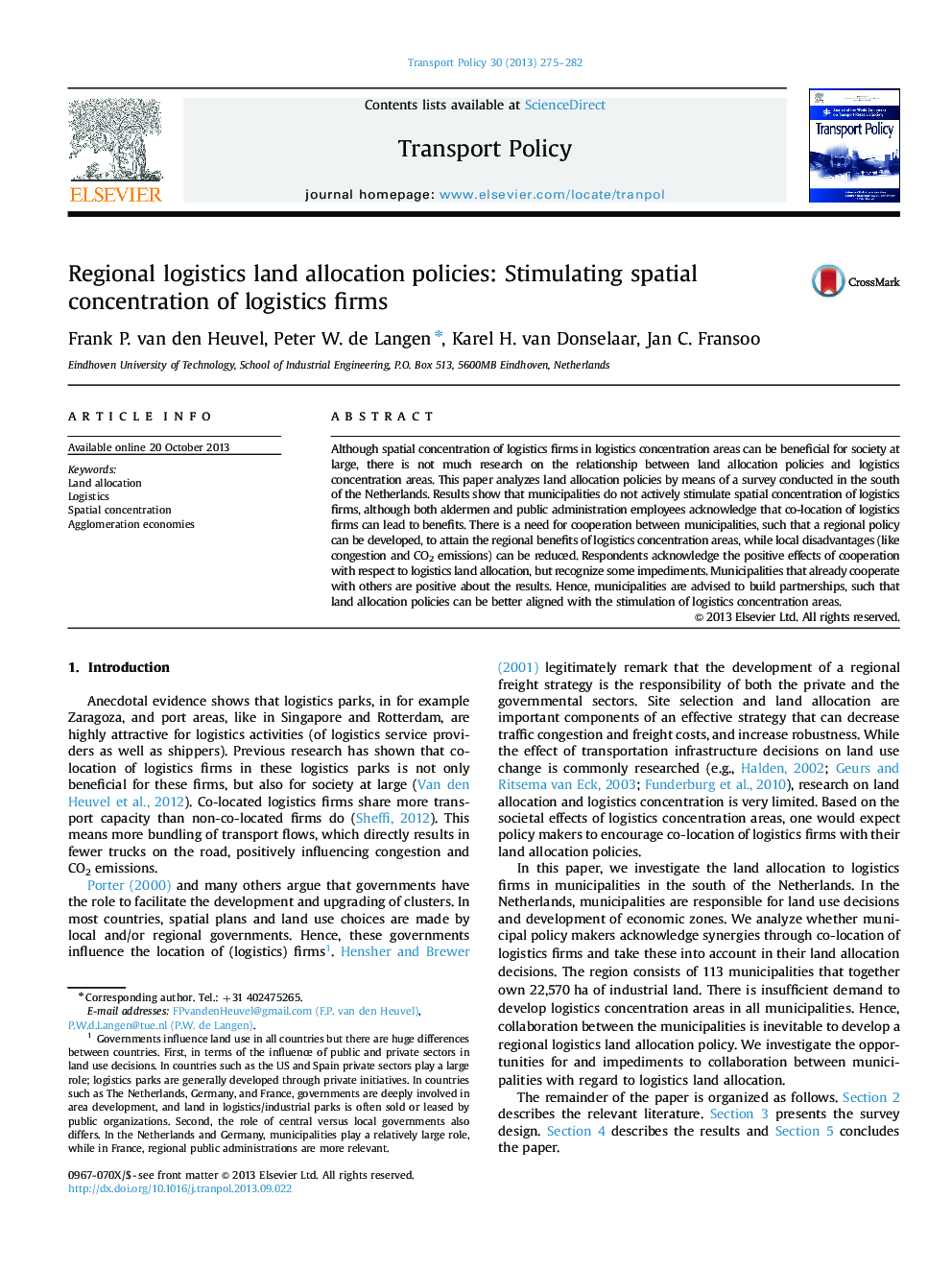| Article ID | Journal | Published Year | Pages | File Type |
|---|---|---|---|---|
| 7498186 | Transport Policy | 2013 | 8 Pages |
Abstract
Although spatial concentration of logistics firms in logistics concentration areas can be beneficial for society at large, there is not much research on the relationship between land allocation policies and logistics concentration areas. This paper analyzes land allocation policies by means of a survey conducted in the south of the Netherlands. Results show that municipalities do not actively stimulate spatial concentration of logistics firms, although both aldermen and public administration employees acknowledge that co-location of logistics firms can lead to benefits. There is a need for cooperation between municipalities, such that a regional policy can be developed, to attain the regional benefits of logistics concentration areas, while local disadvantages (like congestion and CO2 emissions) can be reduced. Respondents acknowledge the positive effects of cooperation with respect to logistics land allocation, but recognize some impediments. Municipalities that already cooperate with others are positive about the results. Hence, municipalities are advised to build partnerships, such that land allocation policies can be better aligned with the stimulation of logistics concentration areas.
Related Topics
Social Sciences and Humanities
Social Sciences
Geography, Planning and Development
Authors
Frank P. van den Heuvel, Peter W. de Langen, Karel H. van Donselaar, Jan C. Fransoo,
